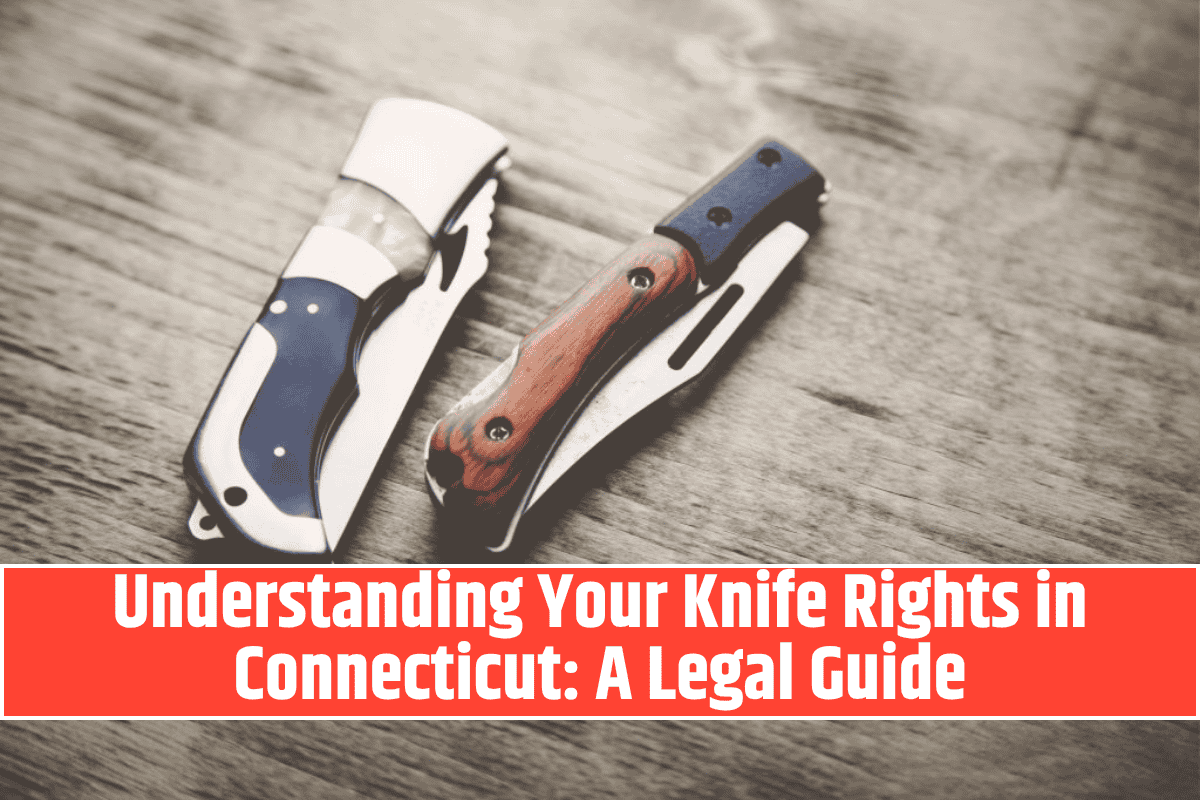In Connecticut, like in many other states, laws and regulations govern the possession, sale, and carrying of knives. These laws are designed to balance the right of individuals to own and use knives with the need to ensure public safety.
Whether you’re a resident or just visiting, it’s important to understand Connecticut’s knife laws to avoid potential legal issues.
This guide will help you navigate through the different categories of knife laws, including what types of knives are legal or illegal, the rules for carrying knives, restricted areas, and special exceptions for law enforcement or military personnel.
Types of Knives in Connecticut
Legal Knives
In Connecticut, individuals are generally allowed to own and carry various types of knives, provided they meet certain conditions. Some of the common legal knives include:
Kitchen knives
Pocket knives with blades shorter than 1.5 inches
Hunting knives
Utility knives
These knives are typically permitted as long as they are not carried or used with the intent to harm others.
Illegal Knives
Some knives are prohibited in Connecticut due to their potential for misuse or their association with criminal activities. These include:
Switchblades with blades longer than 1.5 inches
Automatic knives with blades longer than 1.5 inches
Gravity knives
Stilettos
These types of knives are illegal due to their design and ease of use in aggressive situations. Possessing or carrying these knives could lead to serious legal consequences.
Carrying Laws in Connecticut
Open Carry
In Connecticut, the open carry of knives is generally allowed for knives that are not classified as illegal. However, it’s important to note that carrying a knife with the intent to harm someone could result in criminal charges, regardless of whether the knife is legal or not.
Concealed Carry
Concealed carry laws are more complicated. While there is no explicit prohibition against carrying legal knives concealed, doing so with the intent to harm or frighten another person is illegal.
Concealing a knife for any reason other than lawful use could lead to criminal charges. Always ensure that knives are carried discreetly and responsibly.
Restricted Locations for Knife Possession
Certain locations in Connecticut have strict laws prohibiting the possession and carrying of knives, even if the knife is legal. These restricted areas are generally aimed at maintaining public safety and order. Common restricted locations include:
Schools and educational institutions
Government buildings
Courtrooms
Airports
Violating these restrictions can result in legal action, including fines or imprisonment.
Law Enforcement or Military Exceptions
Law enforcement officers and active-duty military personnel are generally exempt from some of the restrictions that apply to civilians. They may be allowed to carry knives as part of their official duties.
However, it’s important to check specific regulations or policies for detailed information about these exceptions, as rules may vary depending on the agency or department.
Consequences of Violating Knife Laws
Failing to comply with Connecticut’s knife laws can result in serious consequences, including:
Criminal charges, ranging from misdemeanors to felonies depending on the violation
Fines
Imprisonment
Confiscation of the weapon
It is crucial to understand the laws governing knife possession and carrying in Connecticut to avoid these potential penalties.
Connecticut’s knife laws are designed to strike a balance between personal rights and public safety. By understanding the types of knives that are legal and illegal, knowing the rules for carrying knives, and respecting restricted locations, you can stay on the right side of the law.
If you are unsure about the legality of a knife or how to carry it, consulting a legal professional or local authorities can help ensure you avoid any legal issues.












